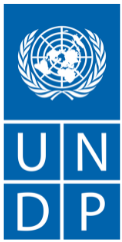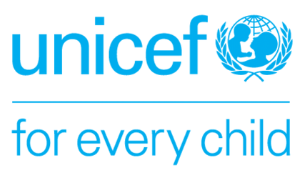At the 2023 Financing for Development Forum on 20 April, Ms. Raden Siliwanti, Director for Multilateral Funding, Ministry of National Development Planning of, Indonesia delivered a speech during the Roundtable: Integrated National Financing Frameworks – national actions to raise financing for the SDGs.
Indonesia is one of the initial INFF pioneer countries and has put in place many of the building blocks of an INFF. In her speech, Ms. Siliwanti shares how Indonesia has used INFF to help mobilize additional resources for its SDG investments and Indonesia's efforts in innovative financing tools.
She highlights that Indonesia has developed an SDG roadmap, which identifies a $1 trillion financing gap for achieving the SDGs. To address this gap, Indonesia has championed innovation in sustainable finance, implementing a tagging system for planning and budgeting, promoting public-private partnerships, and utilizing innovative financing instruments.
Indonesia has raised over $7.5 billion through Green Sukuk, green bonds, and SDG bonds and plans to issue blue bonds this year. The country sees the potential of the INFF as an effective financing strategy for streamlining its financing ecosystem. Following the launch of its INFF in August 2022, Indonesia has engaged with key stakeholders and identified financing gaps and solutions.
The INFF has helped bring together different stakeholders and played a catalytic role in delivering integrated solutions. The operationalization of the INFF is supported by a presidential regulation on SDG implementation, emphasizing the country's commitment to innovative finance for sustainable development.
The full transcript of the speech is attached below.
Thank you, Chair, Excellency, and Distinguished colleagues. I thank the President of the ECOSOC for inviting Indonesia to share our experiences in financing the 2030 Agenda for Sustainable Development.
I would like to start sharing Indonesia's experience on the INFF by framing it in the context of sustainable finance progress in Indonesia. The Indonesia Ministry of National Development Planning has developed an SDG roadmap in Indonesia to guide all stakeholders in the direction toward achieving SDGs, including identifying the SDGs financing gap in Indonesia estimated around US$1 trillion by 2030, even before the pandemic. The roadmap underscored the need to address this financing gap, including through innovative financing among others.
Over the years, Indonesia is proud to have championed innovation in sustainable finance to narrow the SDG financing gap both in the public and private sectors. From implementing a tagging system in planning and budgeting for the SDGs and climate change and encouraging the implementation of the PPPs to the publication of the Sustainable Finance roadmap and green taxonomy.
We have also leveraged a variety of innovative financing instruments such as green Sukuk, SDG bonds, blended finance, result-based Payment, and Islamic finance, to crowdfunding in private capital for Sustainable Investment.
The potential for unlocking sustainable finance in Indonesia is enormous. Within the past years, Indonesia has raised over US$7.5 billion from the issuance of Green Sukuk, green bond and SDG bond, and we will continue with the issuance of the blue bond this year.
The country is also the largest impact investing market in Southeast Asia. Considering the potential, these various initiatives of sustainable finance shall be coordinated under a holistic financing strategy to improve the coherence between planning and financing for SDGs. Within this context, Indonesia truly sees the potential of INFF as an effective financing strategy that provides the framework to streamline the financing ecosystem.
As we conducted the development finance assessment for INFF, we learned there are abundant financing options and sources of alternative finance which has not been optimised to address the country's US$1 trillion need for financing to achieve SDGs.
Yet, there are challenges that need to be overcome. Indonesia consequently identified the financing gaps and solutions and device a comprehensive approach to mobilizing the finance.
Following the launch of the INFF in August 2022, we have carried forward the groundwork by engaging with key stakeholders in blended finance, impact investing, faith-based and social finance, as well as public finance reform.INFF therefore becomes a bridge to address many persistent challenges pertaining to innovative and sustainable finance.
The INFF also helps to bring together different stakeholders who previously worked in silos, playing a catalytic role to deliver an integrated solution. The operationalization of the INFF in Indonesia is strengthened with a presidential regulation on the SDGs implementation, which emphasize our commitment to promoting innovative finance as an important resource for sustainable development. INFF building blocks also guide the country step by step to implement the INFF.
Furthermore, at the global level, INFF has been promoted and relevant with various global initiatives, such as acknowledged by the G20 in the 2021 Italian presidency and 2022 G20 Indonesia presidency under the outcome document of the G20 principle for scaling up blended finance in developing countries and LDCs, as well as the newly introduced monitoring framework for a global partnership of effective development cooperation.
Going forward, we believe the critical role of ensuring INFF is to help us identify and pull together our resources of development finance in limiting risk, filling gaps, achieving SDGs, and creating greater impact on the people and planet while ensuring coherence among financial policies.
I thank you.












.png)


